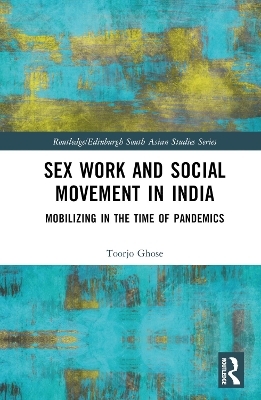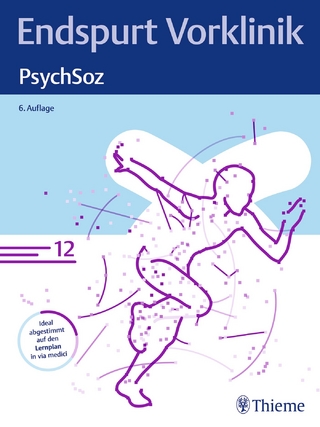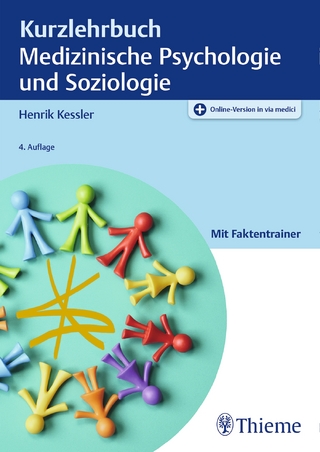
Sex Work and Social Movement in India
Mobilizing in the Time of Pandemics
Seiten
2024
Routledge (Verlag)
978-1-032-75834-3 (ISBN)
Routledge (Verlag)
978-1-032-75834-3 (ISBN)
- Lieferbar (Termin unbekannt)
- Versandkostenfrei innerhalb Deutschlands
- Auch auf Rechnung
- Verfügbarkeit in der Filiale vor Ort prüfen
- Artikel merken
This book examines and theorizes about the birth, growth, impact, co-optation, and rejuvenation of a sex worker movement in India. It will be of interest to researchers from a wide range of disciplines, including South Asian Studies, Sociology, Social Work, Public Health, Gender and Sexuality Studies, and Political Science.
This book examines and theorizes about the emergence, growth, impact, collapse, and rejuvenation of a sex worker movement in India, exploring the manner in which the two pandemics – HIV and COVID-19 – bookended a feminist movement through more than a quarter of a century, shaping its trajectory over the course of that time.
Focusing on the sex workers’ collective Durbar Mahila Samanwaya Committee (DMSC) in Kolkata, the book asks these questions: How did a sex workers’ collective rise from the margins of Indian society during the HIV pandemic, to become the vanguard of a global sex work movement, with half a million members, and partner collectives stretching across the world? What were the strategies deployed by the collective to engage with the health, social, and political landscapes surrounding it? Moreover, what were the factors that led to the splintering of a solidarity that had endured for a quarter of a century? Finally, what does the DMSC story tell us about social movements that rise from the extreme margins of society in postcolonial contexts? Drawing on empirical research, the author explores the conceptual and practice implications for the fields of social movement, feminist, public health, and postcolonial political scholarship. The book suggests that activist, public health, social work, and policy initiatives in poor women’s communities in postcolonial contexts need to be informed by the temporal, community, organizational, institutional, and affective markers that emerge in the research.
The first book to examine the DMSC sex work movement in India as a significant feminist movement of our times, this book will be of interest to researchers from a wide range of disciplines, including South Asian Studies, Sociology, Social Work, Public Health, Gender and Sexuality Studies, and Political Science.
This book examines and theorizes about the emergence, growth, impact, collapse, and rejuvenation of a sex worker movement in India, exploring the manner in which the two pandemics – HIV and COVID-19 – bookended a feminist movement through more than a quarter of a century, shaping its trajectory over the course of that time.
Focusing on the sex workers’ collective Durbar Mahila Samanwaya Committee (DMSC) in Kolkata, the book asks these questions: How did a sex workers’ collective rise from the margins of Indian society during the HIV pandemic, to become the vanguard of a global sex work movement, with half a million members, and partner collectives stretching across the world? What were the strategies deployed by the collective to engage with the health, social, and political landscapes surrounding it? Moreover, what were the factors that led to the splintering of a solidarity that had endured for a quarter of a century? Finally, what does the DMSC story tell us about social movements that rise from the extreme margins of society in postcolonial contexts? Drawing on empirical research, the author explores the conceptual and practice implications for the fields of social movement, feminist, public health, and postcolonial political scholarship. The book suggests that activist, public health, social work, and policy initiatives in poor women’s communities in postcolonial contexts need to be informed by the temporal, community, organizational, institutional, and affective markers that emerge in the research.
The first book to examine the DMSC sex work movement in India as a significant feminist movement of our times, this book will be of interest to researchers from a wide range of disciplines, including South Asian Studies, Sociology, Social Work, Public Health, Gender and Sexuality Studies, and Political Science.
Toorjo Ghose is Associate Professor in the School of Social Policy and Practice, University of Pennsylvania, USA.
Chapter 1. Introduction; Chapter 2. A Conceptual Framework; Chapter 3. Political Society: Initiation and Expansion; Chapter 4. Developing Collective Identity: Cognitive And Affective Framing; Chapter 5. Mobilization and Health; Chapter 6. The Toes of Sati: Creating a Conjunctional Movement; Chapter 7. Dust From Her Doorstep: Civilizing Political Society; Chapter 8. Hybridity; Chapter 9. Disruption and Resurgent Mobilization; Chapter 10. Cyclical Society and its Implications; Index
| Erscheinungsdatum | 13.11.2024 |
|---|---|
| Reihe/Serie | Routledge/Edinburgh South Asian Studies Series |
| Zusatzinfo | 2 Tables, black and white; 11 Line drawings, black and white; 11 Illustrations, black and white |
| Verlagsort | London |
| Sprache | englisch |
| Maße | 156 x 234 mm |
| Themenwelt | Geisteswissenschaften ► Psychologie ► Sexualität / Partnerschaft |
| Studium ► 1. Studienabschnitt (Vorklinik) ► Med. Psychologie / Soziologie | |
| Naturwissenschaften ► Geowissenschaften ► Geografie / Kartografie | |
| Sozialwissenschaften ► Ethnologie | |
| Sozialwissenschaften ► Politik / Verwaltung | |
| Sozialwissenschaften ► Soziologie ► Spezielle Soziologien | |
| ISBN-10 | 1-032-75834-1 / 1032758341 |
| ISBN-13 | 978-1-032-75834-3 / 9781032758343 |
| Zustand | Neuware |
| Informationen gemäß Produktsicherheitsverordnung (GPSR) | |
| Haben Sie eine Frage zum Produkt? |
Mehr entdecken
aus dem Bereich
aus dem Bereich


